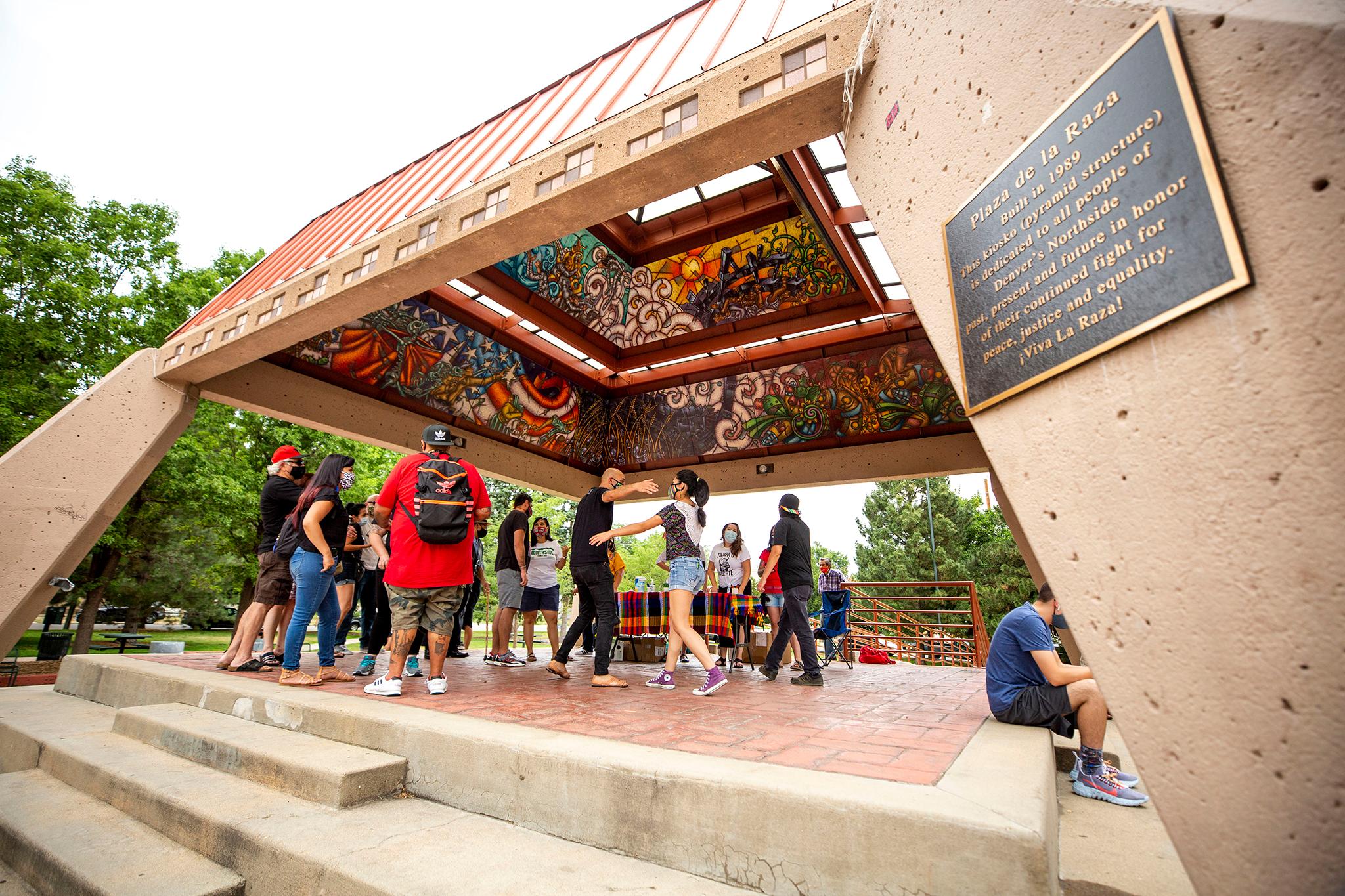Denver City Council on Monday unanimously agreed to rename Columbus Park to La Raza Park, the name generations of Denverites have been calling the Northside green space and community center.
The decision turns an unofficial name into an official one. Councilmember Amanda Sandoval, who campaigned for her seat promising to change the name, said her community felt it was time to change the park's name. She grew up attending graduations, quinceañeras and summer solstice celebrations at the park that's now in her district.
Sandoval teared up as she urged her colleagues to support a bill for the name change.
"I humbly ask my fellow colleagues to support this long overdue name change, and que viva la raza," Sandoval said.
Signature-gathering for a petition to bring the name change before the parks and recreation's advisory board started this summer. City parks and recreation executive director Happy Haynes said her department got 45 letters and emails supporting the change and 16 opposing it. Haynes spoke on Monday in support of the name change.
The Sunnyside park became an epicenter for the Chicano movement in Denver during the 1970s. It was the site of various "splash-ins" at a pool that used to be at the park. Arturo "Bones" Rodriguez, a longtime activist who helped stage those events, said these splash-ins in involved he and other young people "bum-rushing" the pool as soon as it opened.
The park became a hangout spot for Chicanos to get jobs and discover their cultural identity. In 1981, the park was the site of a clash between police and people who were there for an annual celebration marking the park's takeover by the Chicano community. Police claimed the party was not permitted; local reports said some people started throwing rocks and bottles at cops. Police responded by using tear gas and police dogs.
Richard SaBell was the only person during the public hearing on Monday to speak against the name change. He said he's lived down the street from park for most of his life.
"This is an extreme affront to the Italian-American community and a direct attack against our heritage and history in our area," SaBell said. He added that removing Columbus Park's name would mean fewer city landmarks recognizing Italian-American culture.
Rodriguez spoke during the public hearing on Monday in support of the name-change. He said he and others live with the trauma caused by the 1981 incident.
"We now have an opportunity to move forward," Rodriguez said. "We have an opportunity to move into the 21st century."
The park's sign was sometimes crossed off and tagged with its unofficial name. "La raza" means "the race" in Spanish, but its more figurative translation -- and the one supporters of the name-change say it represents -- is "the people".
Naomi Grunditz, a city planner and aide in Sandoval's office, said during a presentation on Monday that the parks department own naming rules supported removing Columbus' name. The rules say the department reserves the right to change a park's name if the person for whom the park is named turns out to be "disreputable". Columbus' actions led to the genocide of Indigenous people.
Grunditz added that the park's rules suggest avoiding naming parks after international figures.













